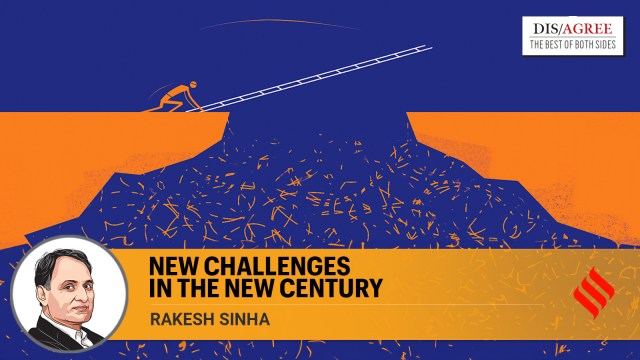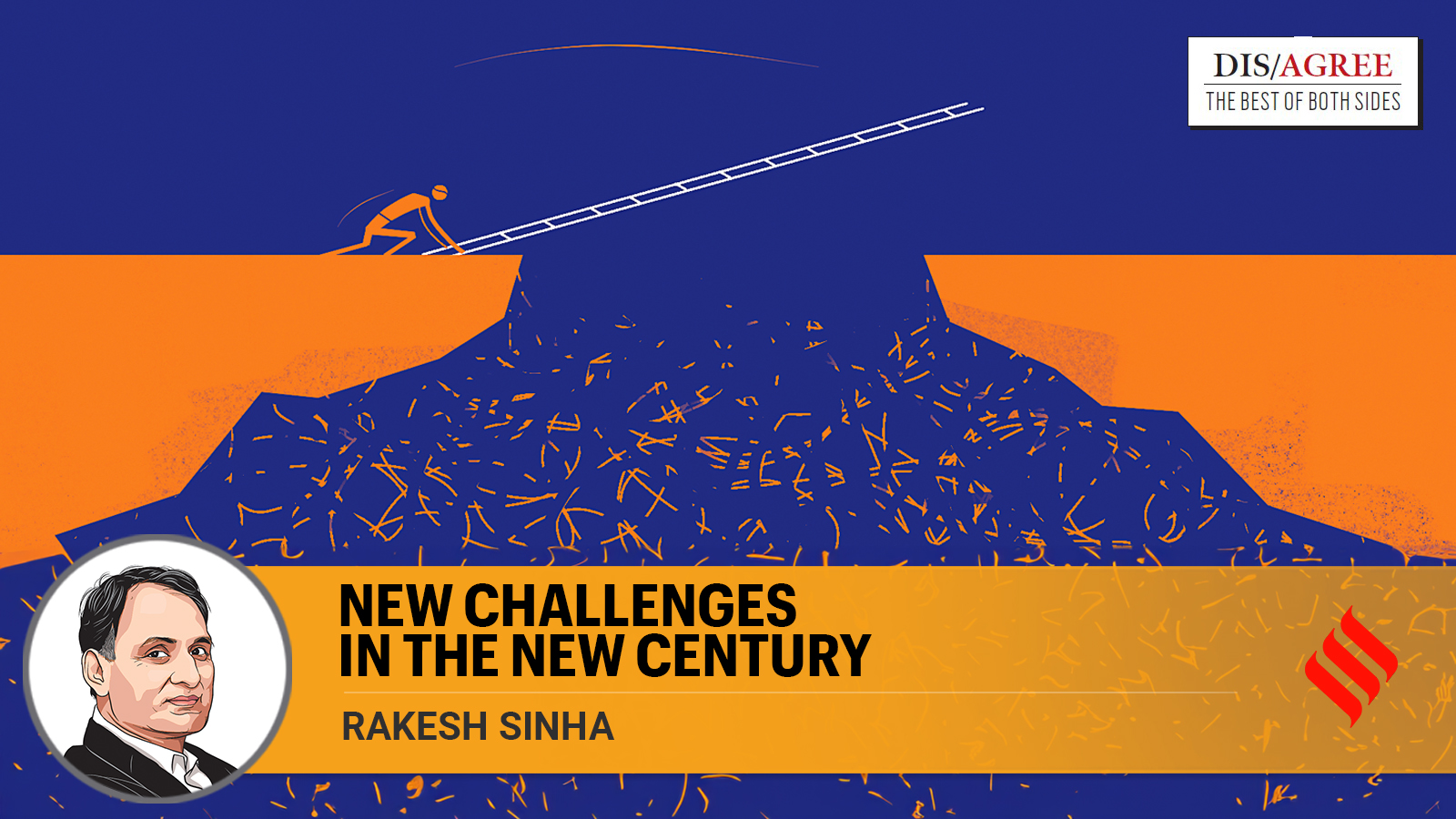
At 100, the RSS is now preparing itself for new socio-economic and cultural complexities. This is obvious from the Vijayadashami speech of its sarsanghchalak, Mohan Bhagwat, who indicated the dangers emerging out of the deep state on the one hand, and new initiatives and strategies that can be used to define India’s cultural identity on the other. In its century-long journey, the RSS has become a powerful voice. This is not only due to its increased organisational capacity but also its unfailing willingness to take on the challenges before society and nation. Therefore, it enjoys the flexibility to contextualise its role and does not remain confined to one specific issue or particular area. This is why it has more than three dozen organisations working in different fields.
In its long history of ups and downs, the RSS avoided even the shadow of division and dilution of its ideology, demonstrating a unique capacity to swallow differences. This is exceptional in the history of social and political movements in the modern world. The assertion in an article published in Mahratta, a Pune-based English daily, published on August 23, 1940, that “Dr Hedgewar’s Sangh is still going strong” holds even today. Its training inculcates teamwork which, to borrow from Emanuel Kant, gives Mundigkeit (maturity) to its workers.
Since the beginning, the RSS has been assailed by political adversaries, to the extent that anti-RSS narratives were backed by the Indian state. One is the allegation about its anti-minority character, which began with the British and the Muslim League, and was institutionalised in independent India by Congress and left-liberals. They ignored facts to spread narratives that would benefit them politically. This led to the systematic and deliberate intellectual ostracisation of the RSS, which responded with grassroots activism. The Indian elites, both Marxist and Nehruvian, remained disconnected from the common people. This led to their moral defeat. The RSS’s connection with common people gave it social respectability even when it was deprived of political legitimacy.
This attitude of the elites towards the RSS not only damaged discourse but also led to undesirable confrontations based on shallow expressions. This is ominous for any liberal democracy.
However, the RSS is now in a new political ecology which is, to a great extent, the result of its growing impact on politics. Those with state power acknowledge its agenda. Narendra Modi is the first Prime Minister to give priority to cultural legacies and civilisational ethos. India is being Indianised under his leadership. In this changed context, the RSS is redefining its role. This includes addressing the unrestricted use of the concept of Hindutva. However, this is not a new phenomenon. RSS founder K B Hedgewar delineated it in a geo-cultural context and liberated it from the narrow concepts of mode of worship or majoritarianism. He faced opposition for not allowing RSS to play a polarising role and indulge in majoritarian politics. On June 17, 1939, an article in Vande Mataram, the mouthpiece of the Hindu Mahasabha, stated, “We humbly wish to convey to Dr Hedgewar that the poison of ego is more devastating than that of a serpent. Don’t ignore the recent history of the downfall of Gandhi, which was brought about because of his ego.”
Gradually, the RSS acquired centrality in the Hindutva movement and now its position is unchallenged. This has been demonstrated from time to time when it responds to those who try to give it an anarchic shape. Bhagwat’s statement, that “searching for a shivling in every mosque is not our job” is one of many.
Bhagwat’s emphasis on friendship between people of various sects and religions has the potential to build social trust. It is also a departure from the conventional mode of community dialogue, which has proved ineffective. In our communitarian life, the formula of friendship is what offers a better understanding of each other and leads to shared resolve. Hindu outreach to Muslims is not unknown, with several Hindu organisations participating. Now, there is an expectation of Muslim outreach to Hindus, which is what can defeat the forces of fragmentation.
The re-moralisation of society is a task before any responsible organisation. For decades, political and social elites shied away from using the idea of morality in their discourse, fearing accusations of hypocrisy. No society can sustain itself without addressing immoral practices. They blinker our vision. The deep state is not just a reference to those who conspire to create violence and promote separatism, but also those who lead to moral degradation.
The RSS has to succeed in its self-assigned task of social democracy. How long will social inequality and communalism continue to be part of the social and political agenda? Such issues are fed on by the deep state. Then there are the dangers emerging from the consolidation of identities, new forms of “rights” that — albeit inadvertently — lead to what Herbert Spencer called the “struggle for existence.” These dangers can come from either side of the political spectrum. Both the left liberals and the new right are to be defeated. To quote Al Gore, from his speech when accepting the Nobel Peace Prize in 2007, “The next generation will ask us one of two questions…Either they will ask: ‘What were you thinking; why didn’t you act?’ Or they will ask instead: ‘How did you find the moral courage to rise and successfully resolve a crisis that so many said was impossible to solve?’”
The writer is a former BJP Rajya Sabha MP



